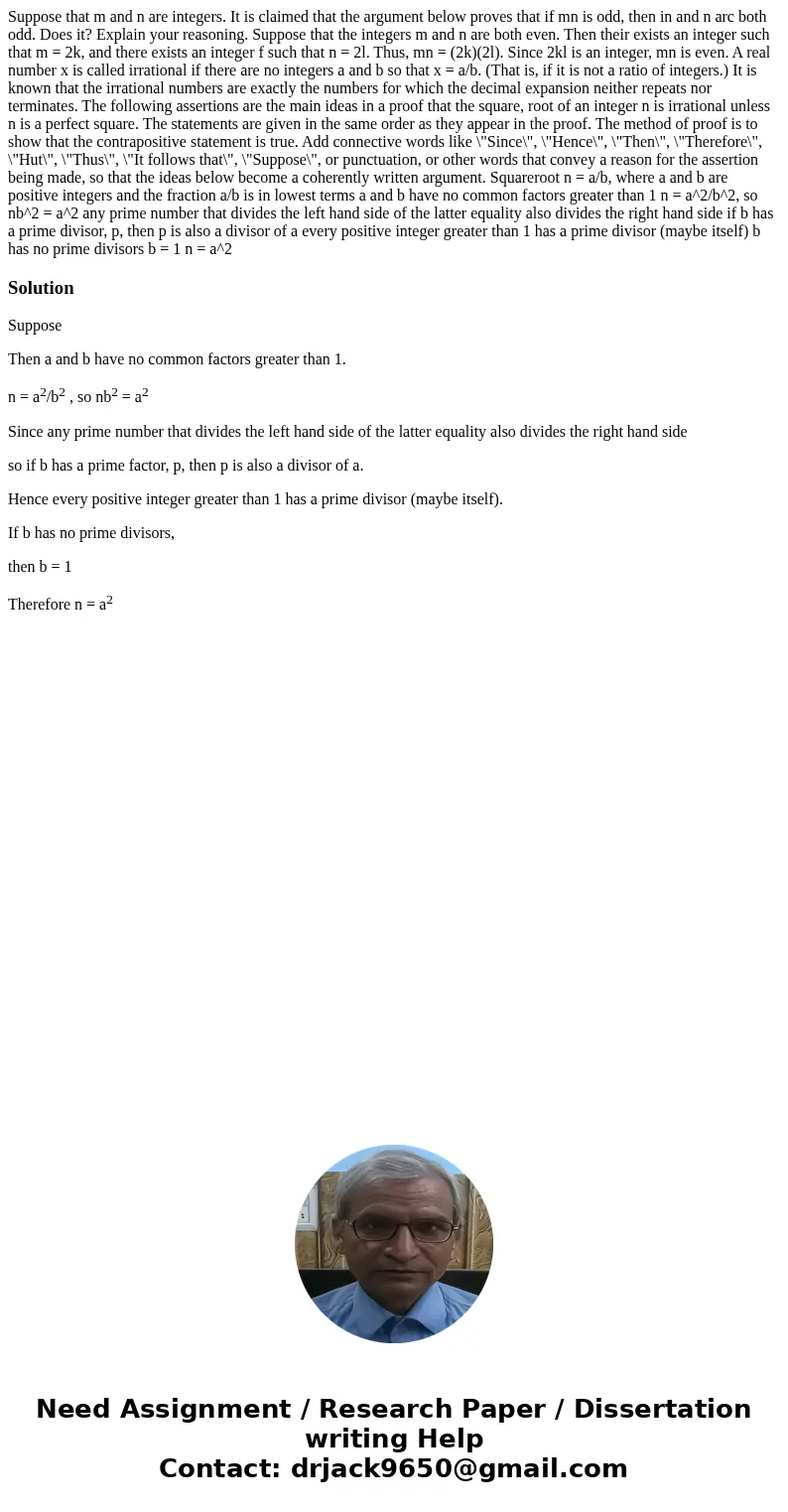Suppose that m and n are integers It is claimed that the arg
Suppose that m and n are integers. It is claimed that the argument below proves that if mn is odd, then in and n arc both odd. Does it? Explain your reasoning. Suppose that the integers m and n are both even. Then their exists an integer such that m = 2k, and there exists an integer f such that n = 2l. Thus, mn = (2k)(2l). Since 2kl is an integer, mn is even. A real number x is called irrational if there are no integers a and b so that x = a/b. (That is, if it is not a ratio of integers.) It is known that the irrational numbers are exactly the numbers for which the decimal expansion neither repeats nor terminates. The following assertions are the main ideas in a proof that the square, root of an integer n is irrational unless n is a perfect square. The statements are given in the same order as they appear in the proof. The method of proof is to show that the contrapositive statement is true. Add connective words like \"Since\", \"Hence\", \"Then\", \"Therefore\", \"Hut\", \"Thus\", \"It follows that\", \"Suppose\", or punctuation, or other words that convey a reason for the assertion being made, so that the ideas below become a coherently written argument. Squareroot n = a/b, where a and b are positive integers and the fraction a/b is in lowest terms a and b have no common factors greater than 1 n = a^2/b^2, so nb^2 = a^2 any prime number that divides the left hand side of the latter equality also divides the right hand side if b has a prime divisor, p, then p is also a divisor of a every positive integer greater than 1 has a prime divisor (maybe itself) b has no prime divisors b = 1 n = a^2
Solution
Suppose
Then a and b have no common factors greater than 1.
n = a2/b2 , so nb2 = a2
Since any prime number that divides the left hand side of the latter equality also divides the right hand side
so if b has a prime factor, p, then p is also a divisor of a.
Hence every positive integer greater than 1 has a prime divisor (maybe itself).
If b has no prime divisors,
then b = 1
Therefore n = a2

 Homework Sourse
Homework Sourse